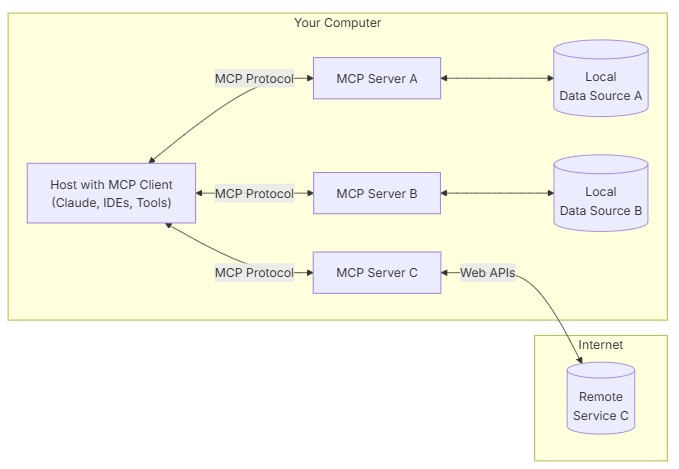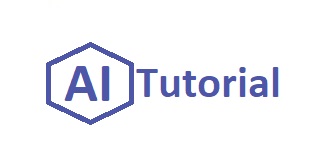🔌 What Is MCP?
The Model Context Protocol (MCP) is an open protocol designed to standardize how applications provide context to Large Language Models (LLMs).
Think of MCP like the USB-C port of the AI world — a universal connector that allows LLMs to plug into various data sources, tools, and infrastructure components in a consistent and secure way.
Just like USB-C enables a wide range of devices to communicate using one common interface, MCP acts as the interface layer between LLMs and the enterprise systems they interact with.
⚙️ Why MCP Matters
Building AI agents and intelligent workflows on top of LLMs requires more than just good prompts. Agents often need to access external tools, structured data, or internal APIs — and that’s where MCP steps in.
- ✅ Pre-built integrations: A growing ecosystem of ready-to-use connectors that LLMs can leverage out of the box.
- 🔄 LLM provider flexibility: Easily switch between model vendors (like OpenAI, Anthropic, Google) without reworking your agent’s architecture.
- 🔐 Enterprise-grade security: MCP promotes best practices for handling sensitive data within your existing infrastructure and security boundaries.
🧱 General Architecture of MCP
The Model Context Protocol (MCP) is an open protocol designed to standardize how applications provide context to Large Language Models (LLMs).
MCP’s client-server model enables modular, scalable integration between LLMs and various data and service endpoints — both local and remote.

The Model Context Protocol (MCP) is an open protocol designed to standardize how applications provide context to Large Language Models (LLMs).
Hosts are applications running LLM-based agents. Examples include Claude desktop, AI IDEs, automation tools, and enterprise platforms. They initiate connections to MCP Clients to fetch tools and data.
The Model Context Protocol (MCP) is an open protocol designed to standardize how applications provide context to Large Language Models (LLMs).
Clients handle communication between the LLM and MCP Servers. They simplify integration by routing agent requests to the right server without exposing internal complexity.
The Model Context Protocol (MCP) is an open protocol designed to standardize how applications provide context to Large Language Models (LLMs).
Servers expose specific capabilities (file systems, APIs, tools). They are modular and reusable, enabling new features without changing host logic.
The Model Context Protocol (MCP) is an open protocol designed to standardize how applications provide context to Large Language Models (LLMs).
Local databases, files, and internal APIs are exposed securely through MCP Servers so the LLM can interact with them contextually.
The Model Context Protocol (MCP) is an open protocol designed to standardize how applications provide context to Large Language Models (LLMs).
External APIs and cloud-based tools (e.g., Salesforce, public weather APIs) are also accessible through MCP Servers, making agents cloud-aware and powerful.
